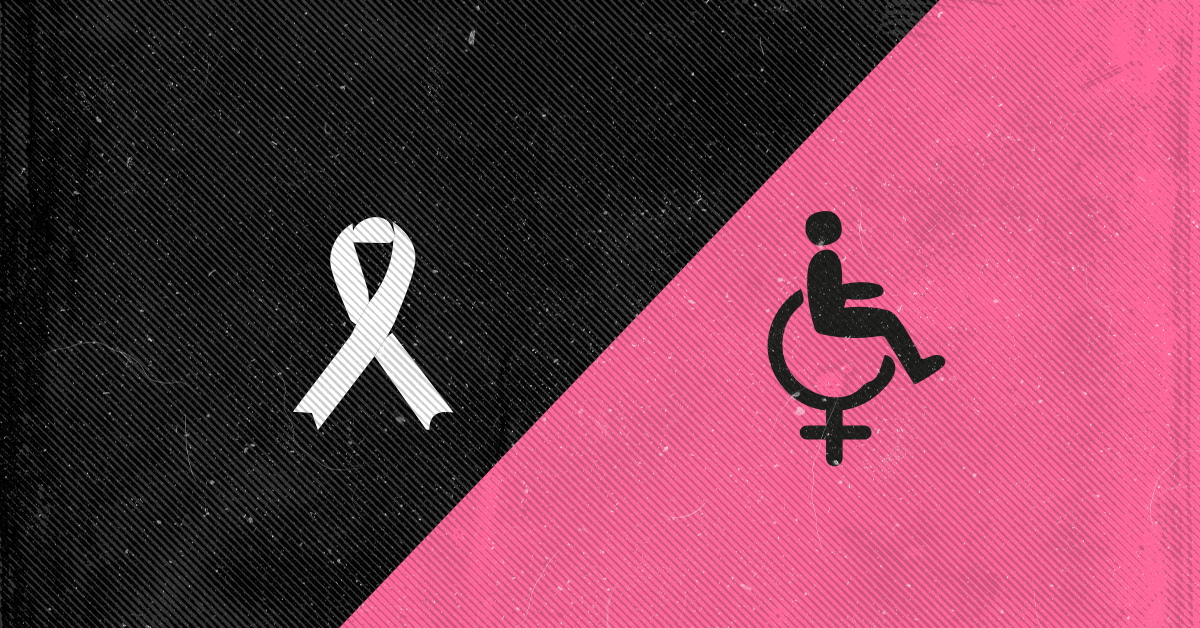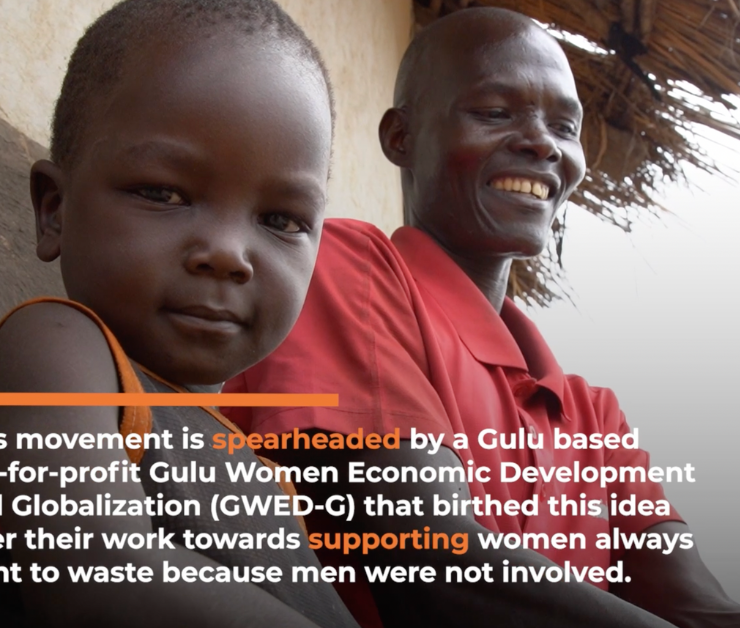Failure To Protect: Disabilities and Gender-Based Violence In Nigeria

Abuja, Nigeria — (Minority Africa) When Bunmi, who was born with a visual impairment, announced to her relatives that a ‘brother’ in her church had shown a willingness to marry her, the news was received with enthusiasm. Many did not hesitate to tell her how lucky she was to have found such a “good man.”
Her marriage was barely six months old when she began to complain to close relatives that her husband and primary caregiver frequently beat her during disagreements and constantly called her an ingrate. He accused her of being ungrateful after he had taken pity on her by marrying her. Her relatives advised her to ‘work harder’ to please her husband and save her marriage. Things however took a turn for the worse when Bunmi suspected that her husband had diabolic intentions towards her.
“He would sometimes rub strange objects on my head and down my body whenever he thought I was asleep, and I could hear him whispering strange things I didn’t understand,” she says. Not long after her husband’s strange behavior began, Bunmi confronted him about it. He did not receive this well and he attempted to strangle her to death. Though she was rescued by neighbors who believed that the couple was having a spat, many women and girls living with disabilities are not so fortunate.
Women and girls living with disabilities are more likely to be victims of gender-based violence than those not living with disabilities. They are even more vulnerable to different forms of violence if they are poor. The violence is usually at the hands of assailants already known to them like their partners, caregivers, family, friends, acquaintances, colleagues, neighbors and so on.
“Most men who are married to women with disabilities often believe that they are doing the women a favor, and sometimes see the women as [defective]objects that they own,” says Ummi Bukar, a gender rights activist with PAGED Initiatives, an NGO focused on inclusivity and equity, especially in marginalized groups. “The situation is worse when the woman is poor, this kind of sensibility is already enough to make a woman in that kind of marriage a target for abuse.”’
Women and girls living with disabilities face the likelihood of abuse at a very young age. This is because of their special needs and dependency. A UNFPA Evidence Brief in 2020 showed that “women and girls with disabilities report higher prevalence of violence experienced before the age of 15.”
In Nigeria, women like Halima and Bunmi often have their constitutional rights violated and have nowhere to get help. While Section 42 of the Nigerian Constitution caters to the right to not be discriminated against because of the circumstances of birth, there are no specific provisions addressing the rights of people living with disabilities. The Discrimination against Persons with Disabilities (Prohibition) Act, which provides inclusive free education, provision for special communication at hospitals, situation of risk and humanitarian emergencies, amongst other things, acts as the primary law for people living with disabilities.
According to estimates by the World Bank, Nigeria has a population of 221.4 million. Nearly half of the population is women, and the World Disability report of 2011 estimates that 20% of women is Nigeria live with a disability. These figures, though abstract, are made up of real women living with disabilities and their marginalized realities, which continue to visibly play out, while the law fails them. On the international level, Nigeria ratified the 2006 Convention on the Rights of Persons With Disabilities (CRPD) in 2007 and its Optional Protocol in 2010.
The convention, according to the United Nations Department of Economic and Social Affairs, highlights the need to move from “viewing persons with disabilities as ‘objects’ of charity, medical treatment and social protection towards viewing them as ‘subjects’ with rights, who are capable of claiming those rights and making decisions for their lives based on their free and informed consent as well as being active members of society.”
Even though Nigeria is a signatory to this convention, there are still problematic issues that affect how people living with disabilities may not be fully able to enjoy their constitutional rights or even be protected under the law in the instances where those rights are rendered non-exercisable or infringed upon.
According to Dr. A.K.A Kolawole, a lawyer whose practice centers on human rights, there is a glaring vacuum regarding the protection of the rights of people living with disabilities. She also says the stigmatization of people living with disabilities leads to economic disadvantages, which inadvertently build up to political disadvantages.
The Ministry of Women Affairs and Social Development, which is the body responsible for the submission of Nigeria’s country report to the Committee on the Rights of Persons with Disabilities, is yet to do so to date. States that are signatories to the convention are required to submit reports two years after ratifying the convention and every four years to show steps that have been taken to ratify it. Nigeria’s first report has been due since 2012. Dr. Kolawole says this shows the level of unseriousness Nigeria has toward the structural implementation of disability rights.
According to a study cited by the International Center for Investigative Reporting (ICIR), the Ministry of Women Affairs, which is responsible for the welfare and rights of persons with disabilities, “understood disability within a discourse of welfare and charity.”
After her attack, Bunmi reached out to a friend who came and took her to the hospital to treat her wounds. The friend also convinced her to take legal action. Bunmi was taken to a local police station to file a complaint.
“The officers kept asking me questions about if I was blind when my husband met me or if it happened after our marriage,” she says. “They also made comments about how I could prove he had beaten me when I couldn’t see him, they said many annoying and insulting things about how women my age who could see didn’t have husbands, but I wanted to send a good man to jail because of small marital challenges.”
Edited by Cassandra Roxburgh, Caleb Okereke, and Uzoma Ihejirika.






